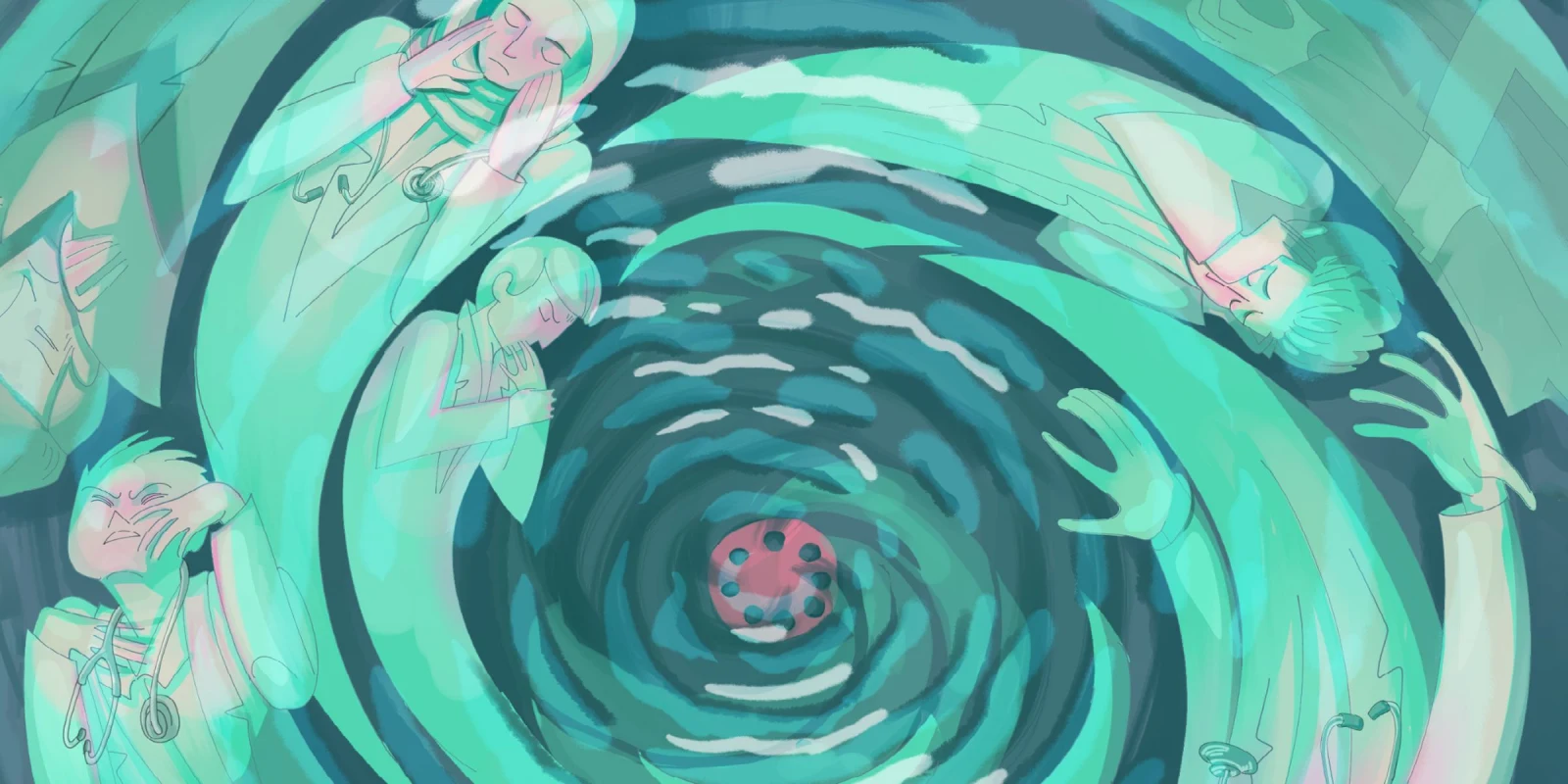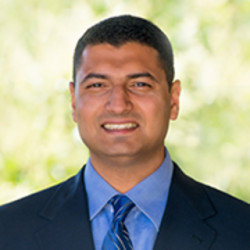Oncologists and oncology professionals possess some of the highest levels of empathy, humanity, and emotional intelligence that I have witnessed in clinical practice. We see some of the sickest patients in emotionally draining circumstances during one of the most vulnerable moments of an individual’s life. We develop meaningful relationships with these patients, as the person behind the illness emerges, allowing us to empower this soul to undergo the rigors of treatment in the hope of reclaiming their lives which are inevitably changed forever. When we deal with death and dying, we also handle this difficult event with a spirit of healing, compassion, and dignity toward patients and their families.
How then, do we become “burnt out” and how does that lead to mental health issues?
The word "burnout” has become the most common term to describe employee disgruntlement in nearly any industry. The issue with this term is it implies that an individual lacks the necessary resilience to perform the work, and therefore the problem insidiously shifts to reside somehow within the deficient individual. By contrast, moral injury in health care practitioners is defined as a fundamental disconnect between the needs of health care systems and one’s own passion, moral beliefs, and motivation to serve patients.
This is compounded significantly by administrative burdens. For example, it can take hours of time to interpret and synthesize complex imaging and pathological information in order to reveal a new diagnosis of cancer to a patient, with the encounter full of empathy while discussing the next steps in therapy. However, as soon as we walk away from that genuine human-to-human connection, we are left staring at a computer screen to synthesize the complex information, differential diagnoses, treatment plan, and shared decision-making involved with the patient. The arbitrarily long consult note must be completed quickly in between visits (or saved until the late after hours) while multitasking the needs of a busy clinical practice, and yet it must be specific and technical enough to read like a legal report while incorporating dozens of EHR clicks to enable medical billing. This does not even begin to encompass the critical analysis required to write time-sensitive orders for important studies, diagnostics, and the actual complex chemotherapeutic regimen itself. It also does not account for the countless, uncompensated hours spent in prior authorization paperwork and peer-to-peer visits to prove to an outside party that we are following evidence-based guidelines along with the art of medicine as advocates for our patients.
Regardless of the above, and despite perpetually running behind for the next patient visit, oncologists still keep their heads up with a sense of joy, resilient purpose, and duty. Indeed, we have grown accustomed to, and even (sadly) accepted the administrative chores which put a small dent in our sense of purpose. However, other factors beyond our immediate control can also erode our journeys, pushing us closer to the edge of becoming cynical, depersonalized, or worse — threatening our hard-earned moniker of empathy. Since we are not superhuman nor immune from the physical and emotional exhaustion of compassion fatigue, physical factors (such as the lack of structured breaks, decreased physical activity, and worsening sleep habits) can also take a toll in the spiral of becoming cynical and depersonalized. Without even accounting for social, gender, or personal/family factors, the above process along with a progressive loss of autonomy to practice medicine can lead to a sense of detachment and disconnection from meaningful, rewarding duties, giving way to detrimental feelings of personal failure, impostor syndrome, and depression in oncologists. In a sinister way, within a culture of repetitive, fundamental moral injury, combined with stoicism and “toxic” resiliency, the same positive traits which originally gave an oncologist purpose and compassion can begin to create unrealistic expectations.
To add fuel to the fire, the COVID-19 pandemic brought even more mental health issues to the surface with additional burdens and stressors beyond the sudden disruption in care and the associated fears. We started to spend less face-to-face time with cancer patients and colleagues, leading to concerns about job satisfaction, job security, and ongoing professional development.
This caused many oncologists to leave clinical practice which exacerbated shortages in the workforce, especially with the influx of post-pandemic patients who delayed care or cancer screenings, resulting in more advanced malignancies and sicker patients overall with fewer (yet more “burnt out”) oncologists and a diminished, exhausted workforce to take care of them.
The first step in solving any problem is to acknowledge that it exists. We must be provided a system that breaks the status quo, promising safety and immunity with an open, non-punitive platform to speak candidly about mental health symptoms and disorders. Indeed, as Vivek Murthy stated in 2022, “Burnout manifests in individuals, but it’s fundamentally rooted in systems.” Therefore, resilience training and wellness initiatives for oncologists need to be authentic and practical, rather than contrived wellness checkboxes.
This includes addressing the entire scope of an oncologist beyond their practitioner duties or responsibilities, including practical needs such as physical activity and fitness, childcare and family obligations, sleep habits, coping skills, and stress management strategies among others. There need to be fewer barriers to getting help, including breaks (beyond a fleeting lunch period spent mostly on catching up on EHR tasks or attending conferences) during the daytime for appointments and wellness sessions. Moreover, colleagues from the entire spectrum of the cancer care team should be taught and allowed to recognize symptoms in each other in the spirit of advocacy, empathy, and interpersonal relatedness. Lastly, efforts should be made to harness technology to work for us, rather than the other way around; EHRs, burdensome tasks and paperwork, prior authorizations, and cancer patient visits could be simplified by harnessing the power of AI and telemedicine (perhaps one of the positive sequelae of the COVID-19 pandemic).
It is encouraging to see our voices heard on a national level by ASCO’s development of an “Oncology Clinician Well-Being Task Force” to promote mental health care services for the entire oncology care team to create a genuinely resilient mental health culture and workforce. This task force has a central mission to reconnect oncologists to the meaningful, rewarding duties that enable and empower them to practice the joy of medicine. There are oncology-specific initiatives being promoted to enable healthy work cultures at institutions nationwide in which mental health is not stigmatized, but rather recognized openly, with appropriate resources provided in a non-punitive fashion.
Post COVID-19, oncologists must be willing to inoculate the system with drastic and meaningful reform that results in “herd immunity” for ourselves and for all of our valuable colleagues. Ultimately, we owe it not only to the entire cancer care team but also to the most important clients in the cancer business: our patients. Indeed, if we can nurture emotional renewal and promise a sense of authentic well-being to all oncologists, we will see downstream effects that affect everyone fighting cancer.
What are your thoughts on mental health for oncologists? Share in the comments.
Dr. Phull is a prolific physician-scientist, educator, author, and speaker. He has a passion for cancer care, personalized medicine, and innovation in health care through empathetic leadership. At Palomar Health Medical Group, he is the Director of Oncology and the Chief Medical Officer of Physician Wellness. He also serves as Alumni Specialty Director at the Cleveland Clinic Lerner College of Medicine and as Clinical Instructor at the University of California San Diego.
Illustration by April Brust






